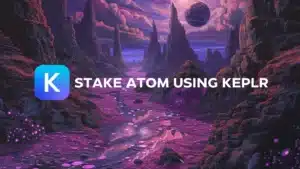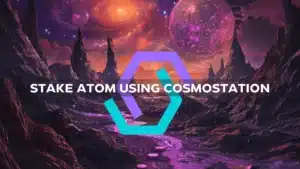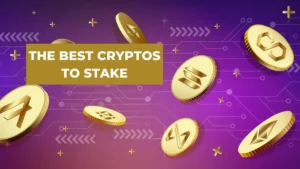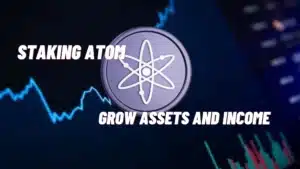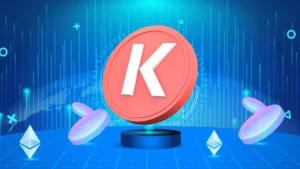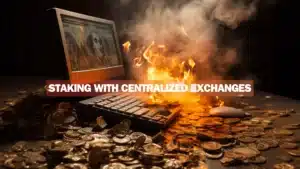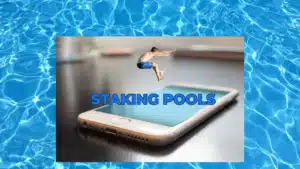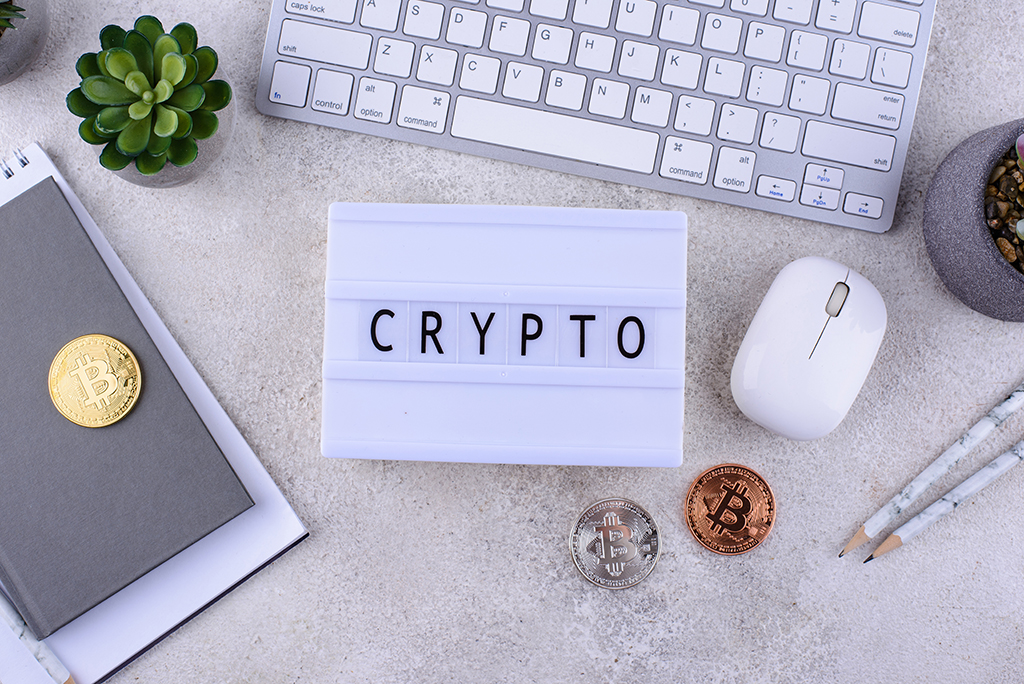One of the most common questions we see online is how to choose a validator. Today, we’ll answer that question specifically.
Every ecosystem is slightly different, but there are some general things to look for. We’ll also link out to specific instructions for Cosmos, Polygon and Polkadot/Kusama.
Delegators often stake their tokens on centralized exchanges, like Coinbase, Kraken or Binance when they get started.
This is a great way to get your feet wet with staking because it’s so convenient, but BEWARE. There are major drawbacks when staking with an exchange.
Want to be notified when there are Cosmos ecosystem airdrops to claim? Subscribe to receive updates sent straight to your email inbox!
Why staking with a centralized provider is bad
1. Huge nodes are terrible for network security. Because it’s so convenient, centralized exchange nodes get HUGE quickly.
2. Centralized exchange nodes are EXCLUDED from receiving airdrops. This is a big deal if you stake ATOM tokens, because there are so many airdrops.
3. Exchange nodes usually charge ridiculously high commission. For example, if you stake KAVA directly with our validator node the current APY is just under 18%. If you stake your KAVA at Kraken the yield is only 6%. That’s a 66% commission and makes an enormous difference to your portfolio over time.
Ever heard of Celsius, BlockFi or FTX? Centralized exchanges often suspend withdrawals without warning, go offline, and even bankrupt. Your funds are then trapped or stolen.
This is why it’s often said, “Not your keys, not your coins.” If you don’t control the keys to your crypto, you don’t control your crypto.
Binance.com suddenly suspending service to U.S. residents is another great example. If you have funds at Binance.com and you live in what turns out to be a restricted country, they’re suddenly stuck.
We suggest reading: Why You Should Not Stake ATOM With Coinbase.
Use exchanges to buy and sell and then self-custody your crypto with a hardware wallet, like a Ledger Nano.
Be sure to check out our article on self-custody too.
Why huge validator nodes are bad for network security
1. Huge nodes with tons of staked tokens can potentially deceive to profit by double signing blocks. That means they say funds went one place, but they actually went another.
2. Additionally, huge nodes are the obvious targets for ddos attacks. Attackers flood the node with hundreds of thousands of spam transactions in an effort to knock them offline and disable the network.
3. Plus, huge validators can sway governance because they have so much voting power. They can ignore what’s best for the ecosystem and vote to line their own pockets.
4. Airdrops often exclude those who stake with the top 10 largest nodes for those reasons. Even staking with the top 25 can adversely affect your airdrops.
How do I know which validators to choose?
Every blockchain network is a little bit different, but there are some good general rules to follow:
1. Choose a validator that has 100% uptime. You want to stake with a node that runs 24/7/365.
2. Make sure they have a website and a way to contact them. Don’t stake with validators who simply have a Twitter handle. That’s a hobbyist, not a pro.
3. Stake with validators that have a verified on-chain identity. Avoid nodes that only have an address and no other info. Dishonest node operators are usually just an address. They can steal your rewards.
4. Select a validator that charges at least 1% commission. 0% commission is the bait that dishonest validators usually use to lure people in. Plus, 0% validators are excluded from receiving Cosmos airdrops.
Additionally, you want to support your validator. If they’re not profitable, then they can’t afford to run the best equipment and reliably earn block rewards. Don’t pay more than 12% commission. FYI, the average validator commission across all blockchains is 10%-12%.
5. Look for validators that have self-staked tokens. If they have skin in the game, then they have a reason to keep the node running.
6. Stake with validators that have a record of voting on network proposals. If they vote, they care and are likely here for the long-term.
7. Stake with validators in the bottom 1/2 of the active set. It helps the network decentralize. Don’t stake with the top 25 largest nodes. Remember, no validator ever takes custody of your tokens.
So, even if your validator is offline or jailed you can stil unbond, or redelegate to a different node.
8. Stake with 2 or 3 validators to hedge your risk of slashing. This is easiest on inexpensive blockchains, like Kava and Cosmos.
Slashing is one of the risks of staking.
If a validator goes offline for too long and misses too many blocks, their node is often slashed. That means everyone staked with that validator loses some tokens. Downtime slashing fees are usually minor and more like a slap on the wrist. The fee tells the validator to get their act together.
If the node mismanages keys or is dishonest and double signs blocks, the node is heavily slashed and removed from being a validator.
9. Finally, stake with validators who are active in the community’s social channels, like Reddit, Telegram, Discord, Medium and Twitter. That generally means they’ll be online to answer your questions and are probably trustworthy.
Now we’ll share how to select validators on the chains we validate for. Each ecosystem has subtle differences, with Polkadot/Kusama being the most different.
Check out How To Choose A Polygon MATIC Validator.
Check out How To Choose A Cosmos ATOM Validator.
Check out How To Choose A Polkadot or Kusama Validator.
We hope this post has been helpful and you now know how to choose validators to stake with. If you have any questions or comments, please leave them below or fill out our contact form.
Frequently Asked Questions
- Choose a validator that has a verified on-chain identity. Do not stake with a validator that only displays an address.
- Nominate and stake with validators that have a website and way to reach them.
- Choose a validator that has at least 95% uptime.
- Stake with a validator that charges at least 1% commission. 0% commission is often the bait that dishonest validators use.
- Avoid oversubscribed validators on Polkadot and Kusama.
- Most validators keep their node wallet small and stake from personal wallets for security reasons. But, choose a validator that has self-staked tokens and skin in the game.
- Stake with more than one validator to hedge your risk of slashing.
Yes, it’s a good idea to stake with several validators. Non-custodial validators, like Blocks United never take custody of your tokens.
However, if a validator double signs blocks or goes offline for too long then their delegators are slashed. Staking tokens with more than one validator hedges your risk of slashing.
Validators must put up collateral to secure a network. Staked tokens act as collateral. The staked tokens provide the validator with voting power. The higher the number of tokens staked with a validator, the higher their voting power.
But, don’t be fooled into thinking that the top 25 largest validators are safer to stake with than smaller validators.
It is important to stake with validators in the lower half of the set to help decentralize the network.
- The token can lose value.
- You can lose tokens if your validator is slashed for downtime or for double signing blocks.
- Custodial validators, like Binance or Coinbase can lock you out and deny access to your tokens.
- Dishonest validators can steal your rewards, but not your principle.
- On certain networks validators can fall from the active set and stop earning staking rewards. This is why it is important to check in on your stake from time to time.
- Validators make money by originating blocks and by signing blocks. Originating blocks pays more.
- Validators make money by charging commission and taking a cut of staking rewards.
- Validators make money by leveraging MEV (Maximal Extractable Value). This means they reorder blocks to favor higher paying transactions.
Only around 40% of validators leveraged MEV in 2022. Some split the MEV with their delegators and others do not. Blocks United does not currently leverage MEV.
Anyone with a spare computer and the technical knowhow can run a validator.
Assume the answer is YES. In the United States crypto staking rewards are taxed like stock dividends as unearned income. But, always consult a tax advisor.
This is one of the most common misconceptions we see online. If you deposit your tokens with Crypto.com, Nexo, Coinloan or Ledn, you are NOT staking your tokens. You are actually lending your tokens to a crypto lender and they’re paying you interest.
They lend your tokens out to traders and charge traders who borrow more than they pay you as a depositor. That difference is called, the spread.
Depositing your tokens with any of these companies is convenient, but you’re supporting them, not the blockchain.
By enlarge, we are against allowing centralized parties to custody crypto.
Nothing we say is financial advice or a recommendation to buy or sell anything. Cryptocurrency is a highly speculative asset class. Staking crypto tokens carries additional risks, including but not limited to smart-contract exploitation, poor validator performance or slashing, token price volatility, loss or theft, lockup periods, and illiquidity. Past performance is not indicative of future results. Never invest more than you can afford to lose. Additionally, the information contained in our articles, social media posts, emails, and on our website is not intended as, and shall not be understood or construed as financial advice. We are not attorneys, accountants, or financial advisors, nor are we holding ourselves out to be. The information contained in our articles, social media posts, emails, and on our website is not a substitute for financial advice from a professional who is aware of the facts and circumstances of your individual situation. We have done our best to ensure that the information provided in our articles, social media posts, emails, and the resources on our website are accurate and provide valuable information. Regardless of anything to the contrary, nothing available in our articles, social media posts, website, or emails should be understood as a recommendation to buy or sell anything and make any investment or financial decisions without consulting with a financial professional to address your particular situation. Blocks United expressly recommends that you seek advice from a professional. Neither Blocks United nor any of its employees or owners shall be held liable or responsible for any errors or omissions in our articles, in our social media posts, in our emails, or on our website, or for any damage or financial losses you may suffer. The decisions you make belong to you and you only, so always Do Your Own Research.
Discount Codes
We have some great discounts available for crypto accounting software Koinly, and Blocks United’s choice for hardware wallets, Ledger. Take advantage of the steep discounts using these links:

